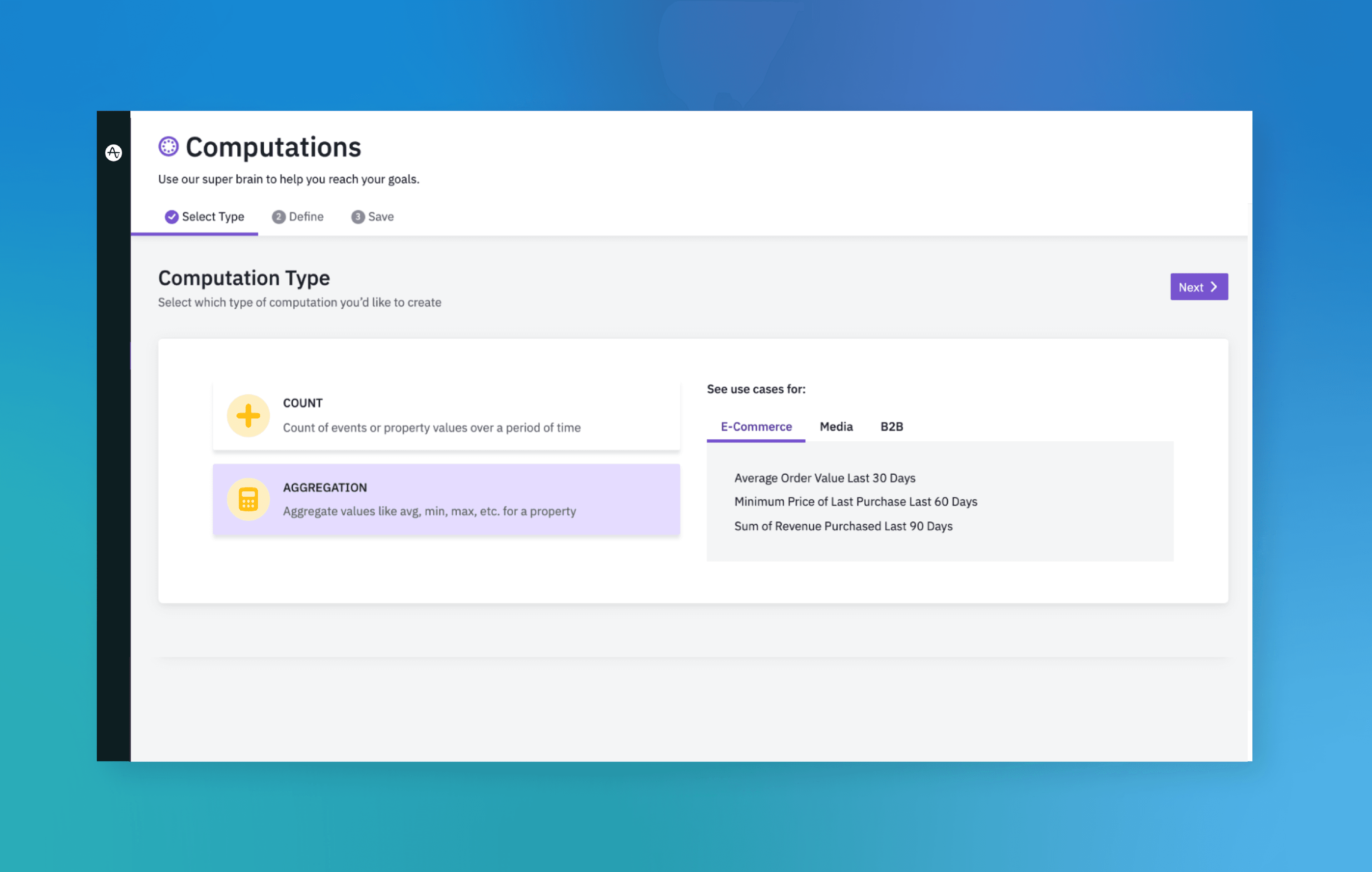Introducing Computations: Convert Behaviors into User Properties
In this post we take a deep dive into Computations, a powerful new segmentation tool in Amplitude Recommend.
A few weeks ago, Amplitude launched Recommend–a new self-serve personalization engine that automates the delivery of 1:1 experiences. Recommend enables organizations to increase the value of their personalization initiatives by leveraging customer behaviors instead of demographic traits. Through segmentation, predictions and recommendations, Amplitude Recommend makes it possible for any company to deliver Netflix-like experiences without the technical overhead.
Behavioral segmentation is the first step toward delivering personalized experiences, but this alone is a major hurdle for most digital teams. It requires grouping users by shared behaviors across multiple events and sessions, which is extremely time intensive when done through rigid SQL interfaces and streaming pipelines. Creating aggregate segmentations, like those based on average order value or total order count, is nearly impossible–it requires implementing individual pipelines to calculate each segment.
To solve this, today we’re launching Computations – a new feature in Amplitude Recommend.
Building Computations – No Engineering Required
Computations measure users’ aggregate behaviors, and store this information in new user properties, such as total shows watched, average minutes watched, or the last product viewed. Once you’ve created computed user properties, you can apply them as segmentation criteria in Amplitude Analytics, Recommend, or Experiment. This is incredibly powerful, and can be set up with a few button clicks–no SQL, no pipeline management.
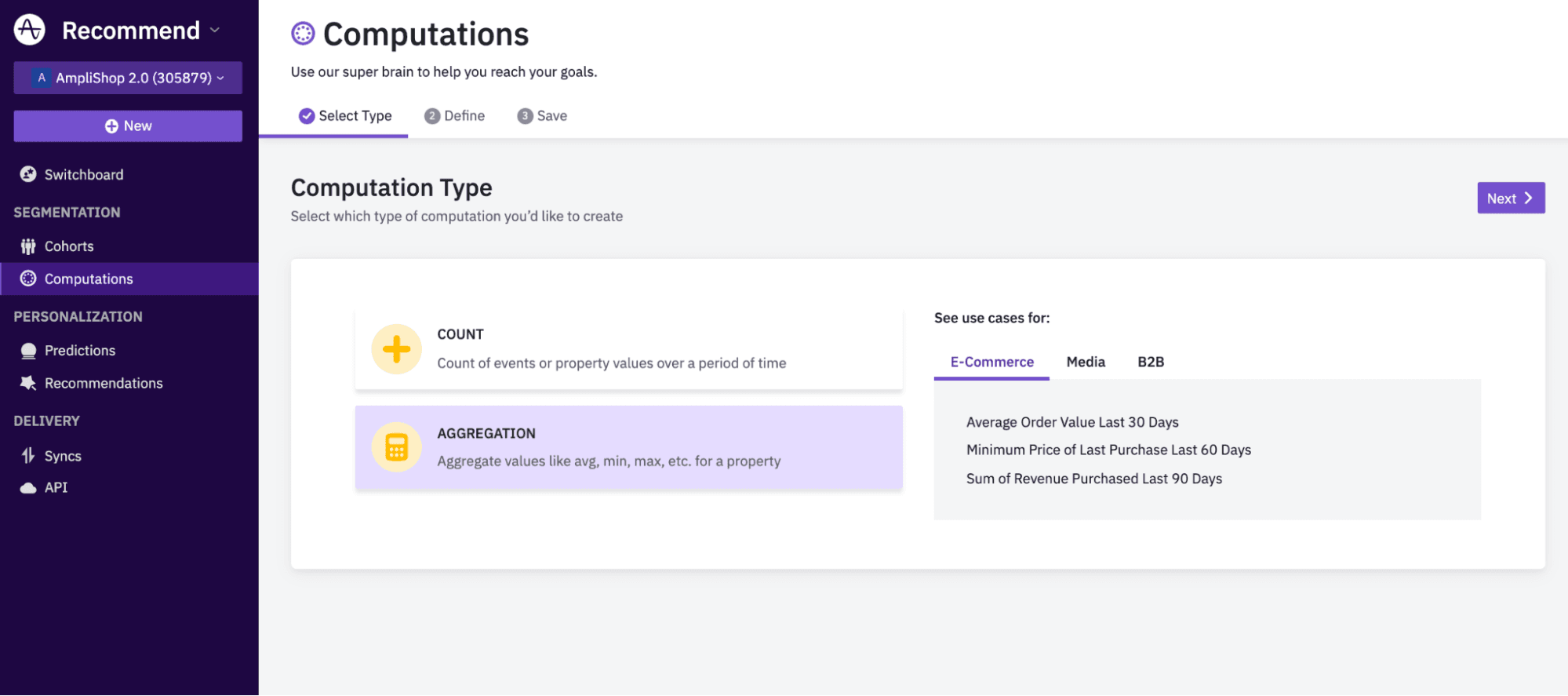
First, simply select the type of computation you’re interested in. There are Event Counts (counting the number of times an event occurs), Aggregations (performing a sum, min, max, avg of an event property), and Last Value (returning the last event property value)
In the example below, Computations will segment customers based on how much revenue they’ve generated for our site in the last 30 days.
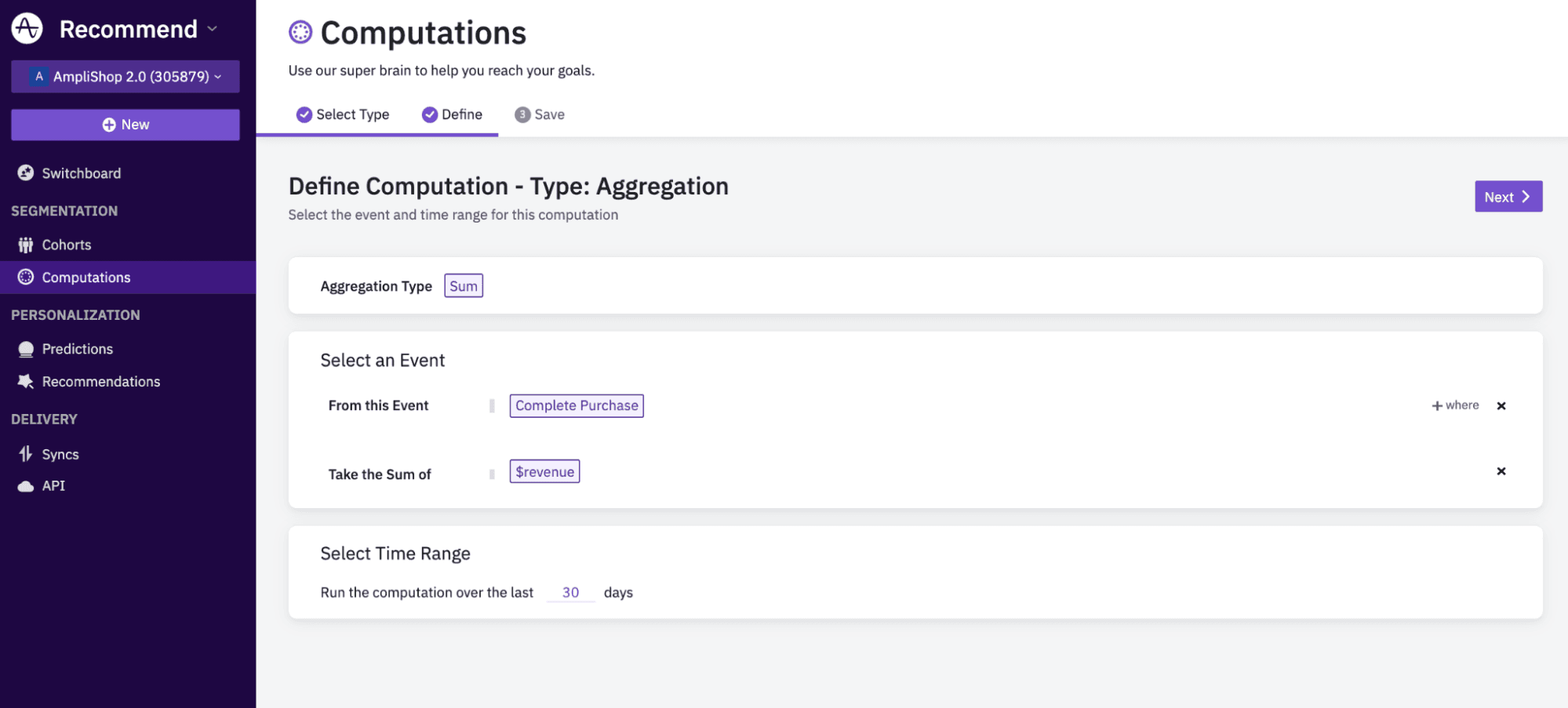
Once the computation is configured, it will compute an aggregated user property for every active user you have stored in Amplitude. In seconds!
The results page will display a distribution of all users, ordered by frequency. You can also search for specific users by userid, and see the value of their individual computed property.
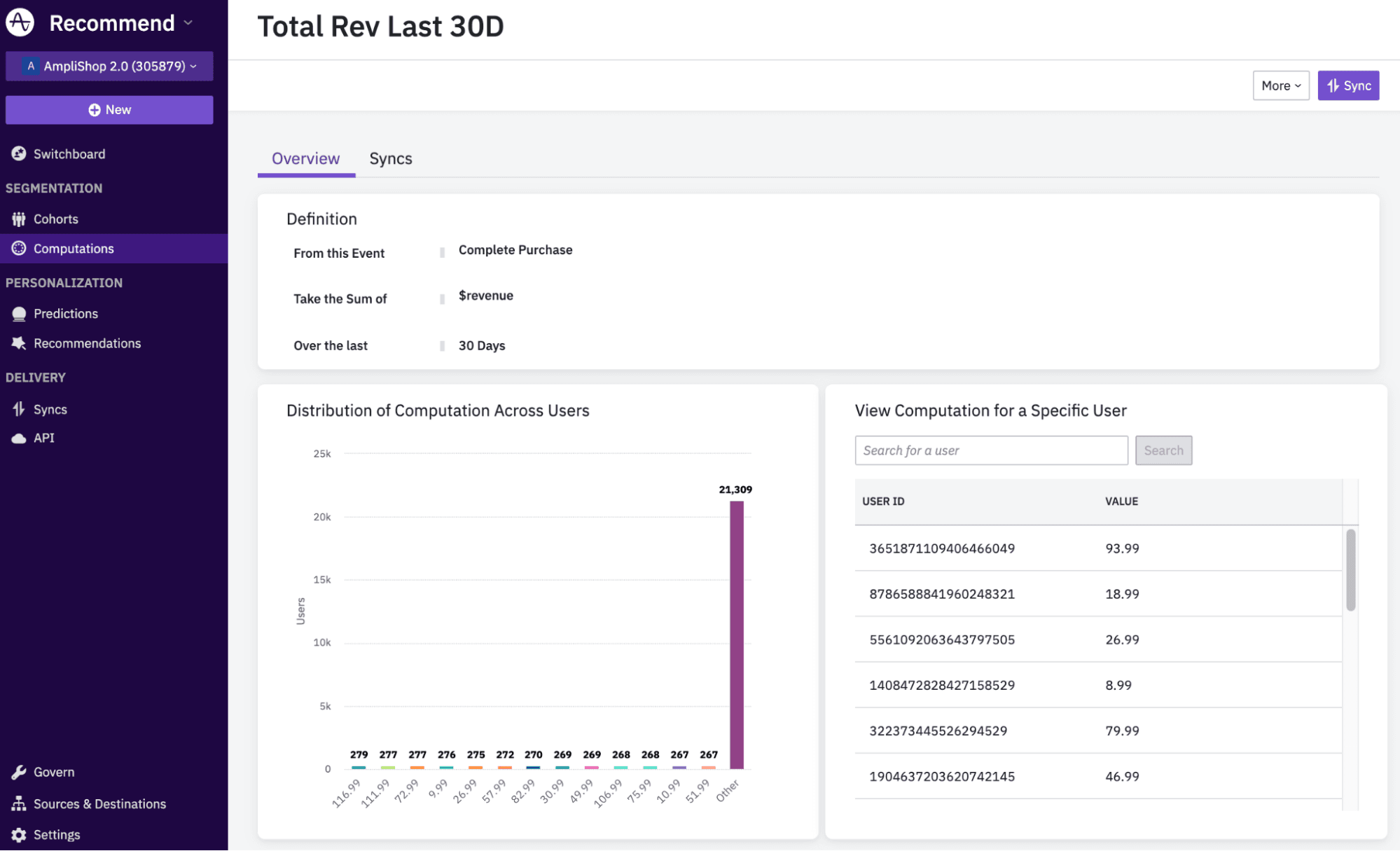
Using Computations – Analytics and Personalization
The power of Computations is that they are available across Amplitude’s entire Digital Optimization System. That means any computed property you create can be used in Amplitude Analytics for segmentation analysis, in Amplitude Experiment for evaluation criteria, and in Amplitude Recommend for syncing properties.
To leverage Computations in Analytics, just select the computed property from the dropdown of properties in the Event Segmentation Chart. The chart will update in real time with the computed segments applied.
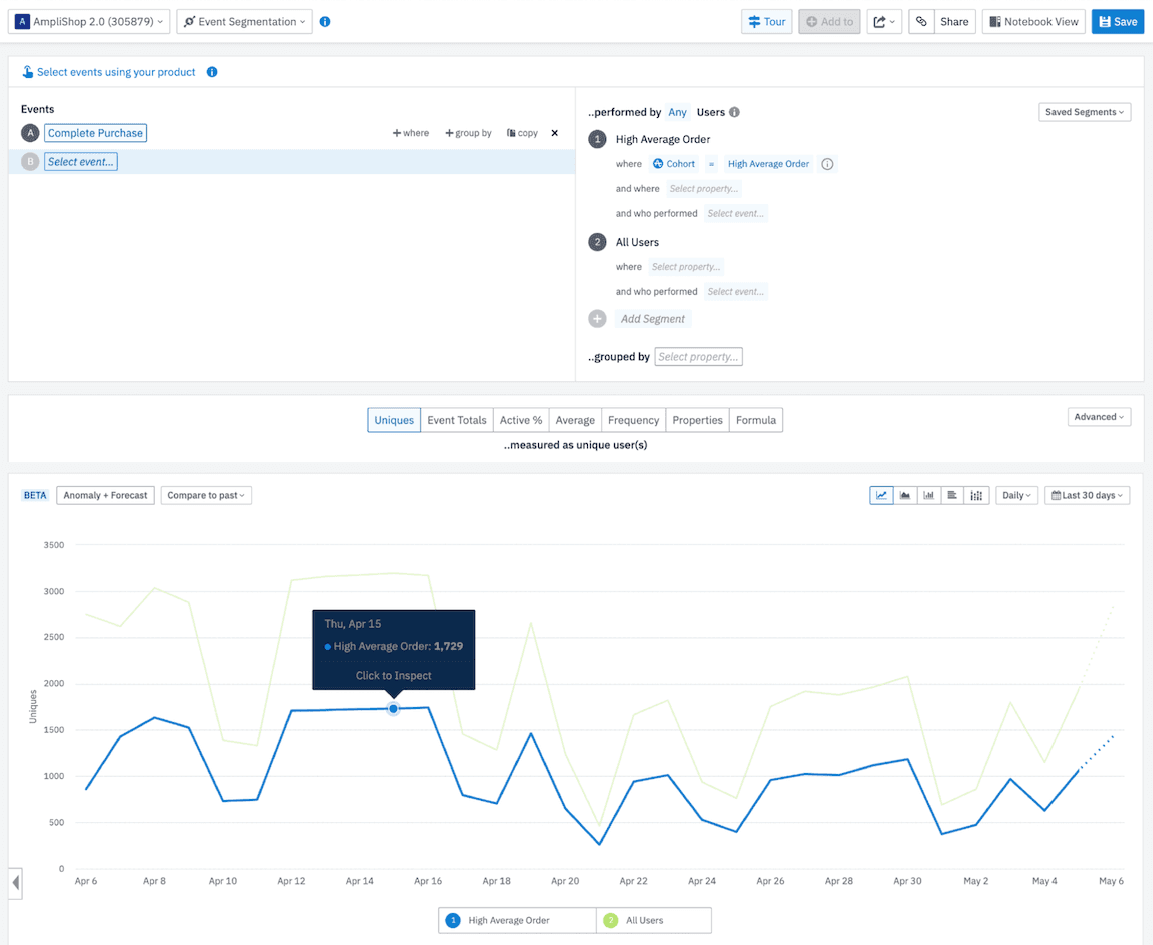
You can also create segments of users by different thresholds of computed properties, such as comparing all users against those with an order value > $60. You can even compare how many times each segment performed individual behaviors respectively.
Once you’ve identified which activity threshold has the highest performance, you can proceed to personalizing experiences by a Computation.
From Amplitude Recommend, you can export the Computation to messaging destinations like Braze, or directly to our real-time Profile API to integrate the computation into your product.
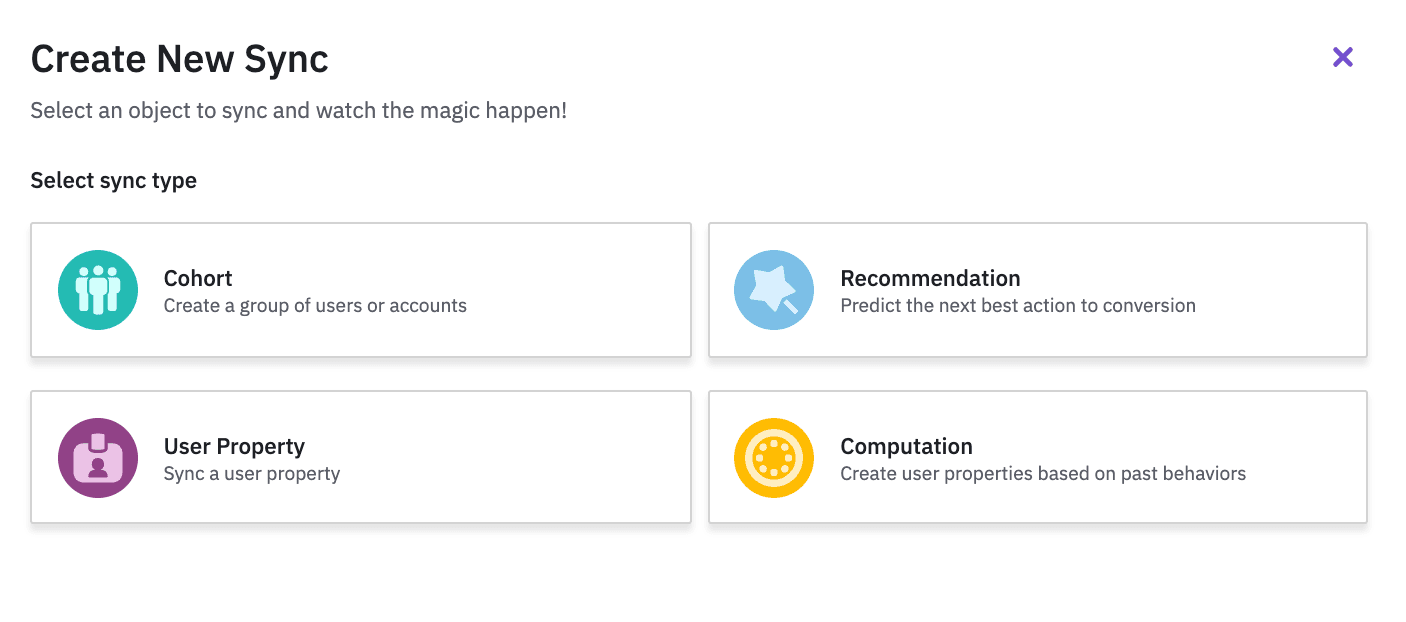
Computed properties exported from Amplitude will refresh every hour, to ensure each user’s values remain up to date. In turn you can personalize custom experiences in your messaging and app platforms to the last product a user viewed, or trigger workflows based on the number of purchases they’ve made.
We’re only a few weeks out from launch, and Computations has already made a tremendous impact for customers. One of the largest B2B payment systems segments users by services added to cart, a major media brand segments users by number of marquee shows they’ve seen, and a QSR company segments users by their average order value. They build these powerful segments in seconds, and apply them to experiences and campaigns, all without any engineering support.
Moving Faster With Computations
The ultimate benefit of working with Computations is speed. It fundamentally accelerates your ability to create complex and actionable behavioral segments, and you can set it up in seconds.
If you were to try building Computations in-house, you’ll need a system that can access all windows of data, process it efficiently, and persist outputs at the user level. It would require a data lake structured specifically for query efficiency in memory or streaming, regular chron jobs to aggregate data on regular cadences, and a self-serve UI to construct and manage the process without any SQL. This is costly, complex, and out of scope for most teams to maintain.
Using Computations in Amplitude Recommend enables customers to leverage the data they’ve already instrumented in Amplitude’s Behavioral Graph. Our query system can express aggregations over any generic taxonomy, enabling flexible query definitions. And our Nova AutoML system allows us to run scheduled Airflow jobs combined with Nova Query to persist the computed properties.
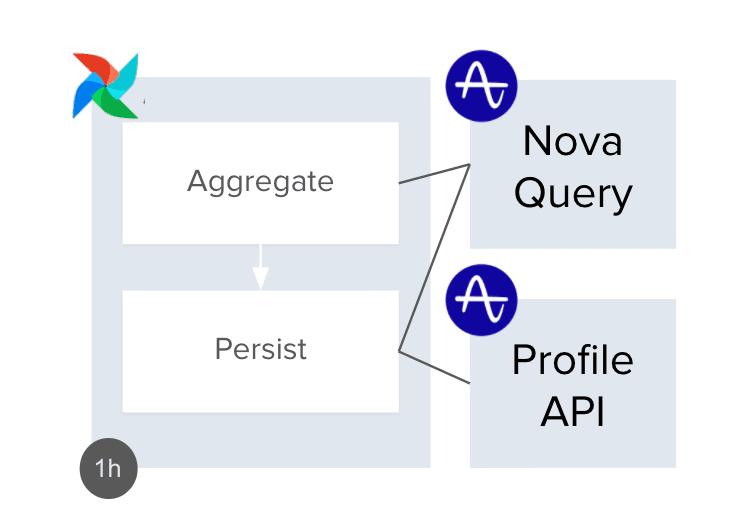
Leaning on Amplitude’s infrastructure saves our customers days if not weeks of development time on any computation–it allows them to build rich, aggregate computed properties in seconds from the click of a button.
To learn more about other Recommend functionality, see our posts on Recommendations and Predictions, or request a demo today.

Cindy Rogers
Former Staff Software Engineer, Amplitude
Cindy Rogers is a former staff software engineer at Amplitude. She focuses on delivering scalable intelligence solutions for product analytics.
More from Cindy
